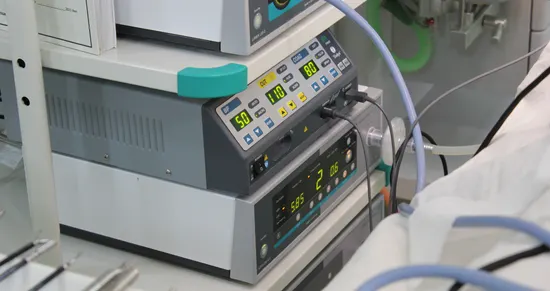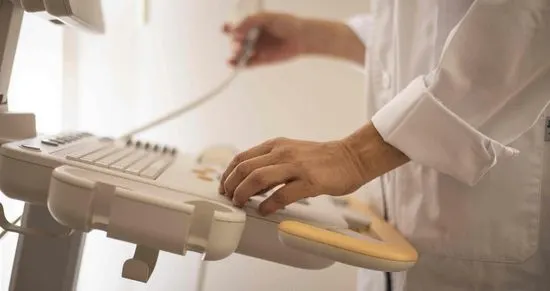In the medical device industry, a Clinical Evaluation Plan (CEP) plays a vital role in ensuring the safety and effectiveness of medical devices. This document outlines the systematic process of evaluating the performance and safety of a medical device before it is introduced to the market. By following a CEP, manufacturers can ensure that their devices meet the necessary regulatory requirements and provide optimal patient safety. In this guide, we will explore the importance of CEPs and how they contribute to the overall quality and reliability of medical devices.
What is a Clinical Evaluation Plan (CEP)?
A Clinical Evaluation Plan (CEP) is a document that outlines the systematic process of assessing the safety and performance of a medical device. It is a crucial component in the medical device industry as it ensures that devices meet the necessary regulatory requirements and provide optimal patient safety.
The Clinical Evaluation Plan (CEP) includes information on the device’s intended use, clinical data sources, evaluation methods, and analysis techniques. By following a CEP, manufacturers can gather and analyze relevant clinical data to demonstrate the safety and effectiveness of their medical devices. This helps to ensure that patients receive high-quality and reliable medical devices.
The systematic process of assessing safety and performance.
The systematic process of assessing the safety and performance of a medical device is a critical step in ensuring patient safety. A Clinical Evaluation Plan (CEP) outlines this process and provides manufacturers with a structured approach to gathering and analyzing clinical data. By following a CEP, manufacturers can identify any potential risks or issues with their devices and take appropriate measures to address them.
This systematic approach helps to ensure that medical devices meet the necessary regulatory requirements and provide optimal patient safety. Without a Clinical Evaluation Plan (CEP), manufacturers may overlook important factors that could impact the safety and effectiveness of their devices, putting patients at risk. Therefore, having a well-defined and comprehensive CEP is essential in the medical device industry.
Ensuring patient safety through CEPs.
Clinical Evaluation Plans (CEPs) play a crucial role in ensuring patient safety in the medical device industry. By following a Clinical Evaluation Plan (CEP), manufacturers can systematically assess the safety and performance of their devices, identifying any potential risks or issues. This allows them to take appropriate measures to address these concerns and ensure that their devices meet regulatory requirements.
Without a CEP, manufacturers may overlook important factors that could impact the safety and effectiveness of their devices, putting patients at risk. Therefore, having a well-defined and comprehensive CEP is essential for maintaining patient safety in the medical device industry.
The importance of CEPs in the medical device industry.
Clinical Evaluation Plans (CEPs) are of utmost importance in the medical device industry as they ensure patient safety. These plans outline a systematic process for assessing the safety and performance of medical devices.
By following a CEP, manufacturers can identify any potential risks or issues associated with their devices and take appropriate measures to address them. This helps in meeting regulatory requirements and ensuring that the devices are safe and effective for use by patients.
Without a well-defined and comprehensive CEP, manufacturers may overlook crucial factors that could jeopardize patient safety. Therefore, CEPs play a critical role in maintaining the highest standards of patient safety in the medical device industry.
Understanding the role of CEPs in regulatory compliance.
Regulatory compliance is a key aspect of the medical device industry, and Clinical Evaluation Plans (CEPs) play a crucial role in ensuring compliance. These plans outline the systematic process of assessing the safety and performance of medical devices, which is essential for meeting regulatory requirements.
By following a CEP, manufacturers can gather the necessary data and evidence to demonstrate the safety and effectiveness of their devices to regulatory authorities. This helps in obtaining necessary approvals and certifications, allowing the devices to be legally marketed and sold.
Without a well-defined and comprehensive CEP, manufacturers may struggle to meet regulatory requirements, leading to delays in product launch or even potential legal consequences. Therefore, understanding the role of CEPs in regulatory compliance is essential for manufacturers in the medical device industry.
Key Components of a Clinical Evaluation Plan
A well-structured Clinical Evaluation Plan (CEP) should include several critical components to ensure it meets regulatory expectations and supports a robust clinical evaluation process. These components begin with a clear description of the medical device, including its intended purpose, classification, and target patient population. The clinical context should outline how the device will be used and in what setting.
Another vital element is the identification and justification of clinical data sources, including pre-market clinical investigations, literature reviews, and post-market surveillance data. The evaluation methodology section defines how the data will be assessed—using qualitative or quantitative techniques—and what acceptance criteria will be applied.
Additionally, the CEP must include a risk-benefit analysis, identification of gaps in clinical evidence, and a strategy to address those gaps. Lastly, a plan for updating the clinical evaluation report (CER) regularly as new data becomes available ensures the CEP remains relevant throughout the device’s lifecycle.
How to Develop a Clinical Evaluation Plan
Developing a Clinical Evaluation Plan (CEP) involves a structured, step-by-step approach aligned with the requirements of the EU MDR and MEDDEV 2.7/1 Rev. 4 guidelines. The first step is to clearly define the intended use and indications of the medical device. Next, manufacturers should identify and gather relevant clinical data from sources such as scientific literature, clinical investigations, and post-market surveillance reports. This data should be critically appraised and analyzed using appropriate methodologies.
The CEP must outline the criteria for evaluating the relevance and quality of clinical data, as well as define how equivalence with similar devices (if applicable) will be demonstrated. Risk-benefit analysis, clinical endpoints, and the rationale for not conducting clinical investigations (if justified) should also be included. Collaboration between regulatory, clinical, and technical teams is essential for developing a robust and compliant CEP that supports the overall Clinical Evaluation Report (CER) and ensures patient safety and regulatory approval.
Conducting the Clinical Evaluation
Conducting a thorough clinical evaluation is a fundamental step in ensuring that a medical device is safe and performs as intended. This process involves the systematic collection, appraisal, and analysis of clinical data related to the device. The clinical data may come from various sources, including published scientific literature, clinical investigations, post-market surveillance reports, and registries. Manufacturers must critically assess the relevance and quality of these data to confirm that they adequately support the device’s safety and performance claims.
A robust clinical evaluation also identifies any gaps or risks associated with the device, which helps in planning further clinical investigations if necessary. It requires multidisciplinary expertise, including clinical, regulatory, and quality assurance professionals, to interpret the data accurately. This comprehensive approach ensures regulatory compliance and supports the preparation of essential documents such as the Clinical Evaluation Report (CER), which is required for market authorization and ongoing post-market surveillance activities.
Common Challenges and How to Overcome Them
Implementing a Clinical Evaluation Plan (CEP) can present several challenges for medical device manufacturers. One common challenge is gathering sufficient and high-quality clinical data, especially for innovative or niche devices with limited existing literature. To overcome this, manufacturers should plan early for data collection and consider multiple data sources such as clinical investigations, scientific literature, and real-world evidence.
Another challenge is ensuring compliance with evolving regulatory requirements, which can differ across regions. Staying updated with guidelines from authorities like the European Medicines Agency (EMA) and the FDA is crucial. Manufacturers can overcome this by engaging regulatory experts and leveraging specialized software tools for continuous compliance tracking.
Interpreting clinical data accurately also poses difficulties, as it requires expertise in both clinical and statistical analysis. Collaborating with experienced clinical evaluators and statisticians can ensure robust data interpretation and sound conclusions.
By anticipating these challenges and proactively addressing them, manufacturers can develop a comprehensive CEP that supports device safety, effectiveness, and regulatory success.
Conclusion
In summary, the Clinical Evaluation Plan (CEP) is an indispensable element in the lifecycle of medical devices, acting as the foundation for ensuring both patient safety and regulatory compliance. By providing a structured and systematic framework for assessing clinical data, CEPs help manufacturers identify potential risks early, address safety concerns, and demonstrate the effectiveness of their products. This not only facilitates smoother regulatory approvals but also builds trust among healthcare providers and patients.
Moreover, with the increasing complexity of medical devices and evolving regulatory landscapes such as the EU MDR and IVDR, having a comprehensive CEP becomes even more critical. It enables manufacturers to maintain up-to-date clinical evidence, adapt to new regulatory requirements, and support ongoing post-market surveillance activities effectively. Ultimately, a well-executed Clinical Evaluation Plan ensures that medical devices remain safe, effective, and reliable throughout their market life, thereby safeguarding patient health and improving overall healthcare outcomes.
Partnering with experts in clinical evaluation can further streamline this process, reduce risks of non-compliance, and accelerate time-to-market for innovative medical technologies.






